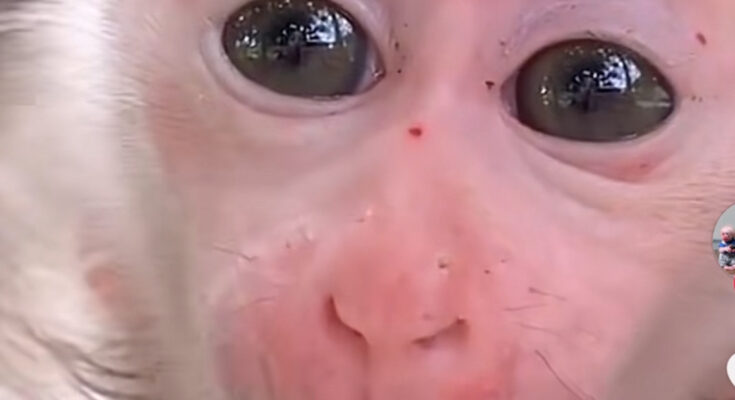Raising a newborn monkey is a delicate and demanding responsibility. These intelligent, social animals require specialized care from the moment they are born. Whether you are a wildlife rehabilitator, a zookeeper, or someone working in conservation, understanding how to keep newborn monkeys healthy is essential for their survival and development. Below are some vital steps to ensure that your baby monkey grows strong, happy, and well-adjusted.
1. Provide a Warm and Safe Environment
Newborn monkeys are unable to regulate their body temperature effectively. They need a warm, stable environment that mimics the comfort of their mother’s body. Use an incubator or a soft-lined enclosure maintained at about 30–35°C (86–95°F). Keep the bedding clean and dry to prevent infections. Avoid drafts or direct sunlight, as both can cause temperature fluctuations that stress the baby.
2. Ensure Proper Nutrition
Nutrition is the cornerstone of newborn monkey health. Ideally, a baby should nurse from its mother, as monkey milk contains essential antibodies and nutrients. However, if the mother is unavailable, you must provide a species-appropriate milk formula recommended by a veterinarian. Never feed cow’s milk—it can cause digestive distress. Bottle-feeding should mimic natural nursing positions to prevent aspiration or choking. Gradually introduce solid foods, such as mashed fruits and soft vegetables, around 8–12 weeks, depending on the species.
3. Maintain Excellent Hygiene
Hygiene is crucial for preventing diseases in newborn monkeys. Sterilize feeding bottles and nipples before each use. Clean the enclosure daily and disinfect surfaces with safe, non-toxic cleaners. Always wash your hands before and after handling the infant to avoid spreading bacteria. Remember, baby monkeys have weak immune systems, so even minor contamination can lead to severe illness.
4. Encourage Social and Emotional Development
Monkeys are highly social creatures, and emotional health is as important as physical care. Newborns require warmth, touch, and bonding to feel secure. If the mother is not present, caregivers can provide gentle cuddling and soft vocal reassurance. As the monkey grows, gradual introduction to other monkeys of its species helps develop proper social behaviors. Isolation can lead to stress, anxiety, and behavioral problems later in life.
5. Regular Veterinary Checkups
Frequent health checkups by an experienced exotic animal veterinarian are vital. The vet will monitor weight gain, hydration, and developmental milestones. Vaccinations and parasite control should follow a species-specific schedule. If you notice symptoms like lethargy, diarrhea, poor appetite, or labored breathing, seek immediate veterinary attention.
6. Mental Stimulation and Play
As the newborn matures, cognitive stimulation becomes important. Provide age-appropriate toys, climbing structures, and opportunities for exploration in a safe space. Playtime encourages healthy brain development, coordination, and curiosity—all traits essential to a monkey’s well-being.
Final Thoughts
Keeping a newborn monkey healthy involves more than just feeding and sheltering—it’s about replicating the nurturing, stimulating environment they would experience in the wild. With proper care, attention, and love, your baby monkey can thrive and grow into a healthy, socially balanced adult. Always remember that these are intelligent, sensitive beings that depend entirely on your compassion and dedication for survival.



